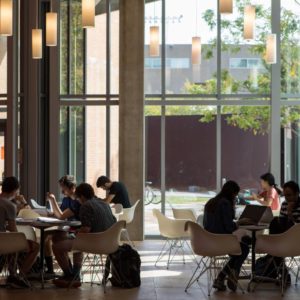
Every exam period, I find myself starting to withdraw from any non-mandatory activities or commitments. While this may seem like a good idea—after all, I need to make time to study in my already full schedule—it has oftentimes proven to be counterproductive. While I do get time back from skipping other activities, more often than not, I actually squander most of that time being stressed instead of using it in a productive way. This is the result of a combination of incorrect assumptions on my part.
The first problem is that I overestimate the value of the time I have “gotten back.” I convince myself that I will be extraordinarily productive and somehow finish an impossible amount of work in a short amount of time. As soon as I realize that my goals were unrealistic, stress starts to set in. Instead of plowing through whatever I can, I start to worry about falling behind. Then I get frustrated at myself for being unproductive, and the frustration makes me even less productive than I was in the first place.
The second problem is very nearly the opposite of the first. If I have a productive few hours or finish a task earlier than I thought I would, I start to feel too relaxed. I overestimate how far ahead this achievement puts me, and then proceed to waste the rest of the day “taking a short break” to reward myself for my often insignificant burst of productivity. I don’t commit to the break enough to do anything to refresh me mentally; instead, I check social media–perhaps finding myself scrolling endlessly through my Facebook newsfeed–and fall into an internet hole, all the while saying “just five more minutes and then I’ll get back to work.” Of course, as soon as I realize how much time I’ve wasted, I’m back to the stress of the first problem, which then leads to me skipping some other commitment, and around and around we go.
The third problem, which is less obvious but, in my opinion, more detrimental than the other two, is the fact that this extra study time comes at the cost of things that I enjoy and that refresh me. Instead of spending an hour working out and taking care of myself physically and mentally, or finishing a project for a club, I gain maybe 20 productive minutes, but actually slow myself down in the long run. I get progressively more burnt out, and the worse it gets, the more time I find myself spending on problems 1 and 2, and the more frustrated and unproductive I feel.
On the rare occasion that I’ve thrown everything down and done the fun thing I wanted to do—whether that be going to see a movie, hanging out with friends, working out, or going to club meetings—I’ve found that my productivity greatly increases. When I fully commit to taking a mental break from work, I come back to whatever I was doing happier and much more energized.
Of course, sometimes it is simply impossible to keep up with everything you want to do during an exam period, and you have to sacrifice some fun things in order to have time to study. It’s critical to find a balance between cutting enough things to make time to study and building in breaks to refresh yourself and increase your productivity. The solution is not to withdraw from the real world and spend every second either studying or trying to make yourself study, but rather to take care of yourself—mentally and physically—and trust that your improved mood and energy will make up for the time you spent away from work. The most important part of this is learning to choose your breaks wisely. The ideal break minimizes time spent away from work, while maximizing the beneficial effects on your mood and health. I have found that some of the best breaks for me involve some sort of movement, like playing sports or taking a long walk with a friend, as this takes my mind completely off my work and resets my mood and energy level.
Just like we make time to nourish our bodies and eat meals during busy periods, we have to learn to make time to nourish our brains with enjoyable breaks. Especially in places like Princeton, we have to remind ourselves and each other that taking a break is not optional or superfluous, but rather critical to our health, happiness, and success.
— Alexandra Koskosidis, Engineering Correspondent

